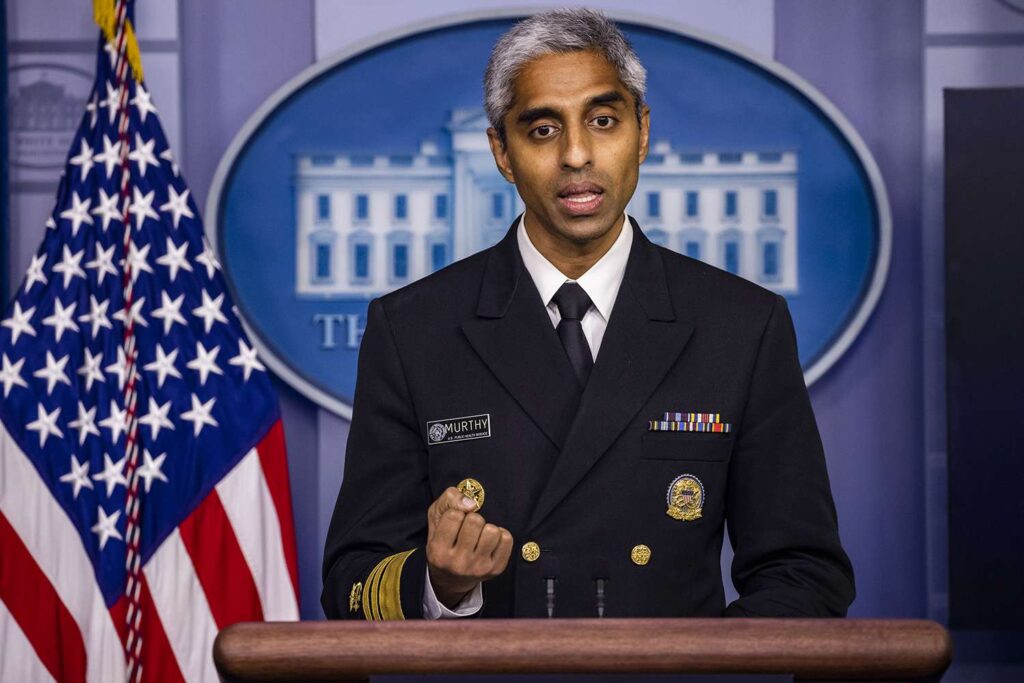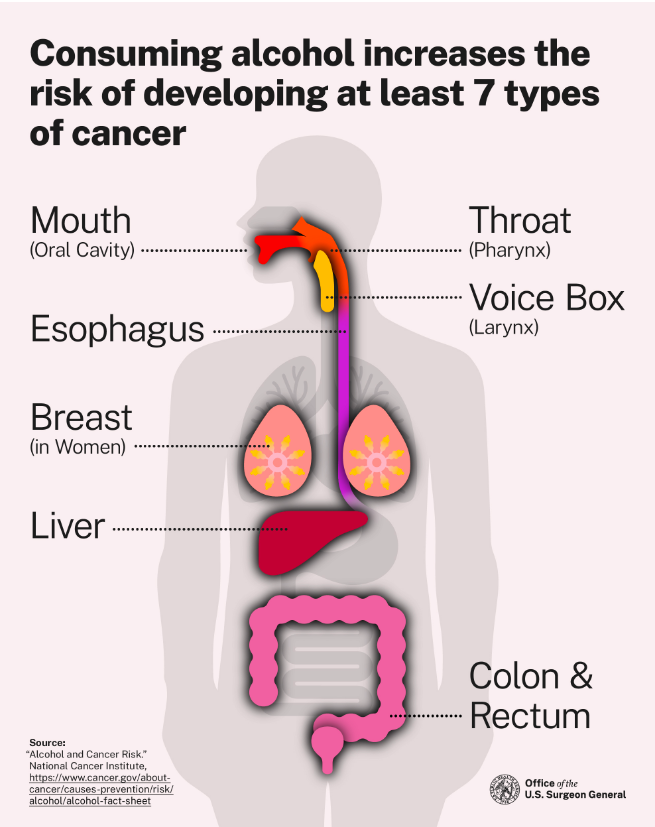In an alarming advisory earlier this month, the United States Surgeon General Vivek Murthy alerted the public to the cancer risk associated with drinking alcohol and called for warning labels to appear on packaging in the same way it does on cigarettes. Until now the risk has been known but downplayed by a culture where alcohol is often celebrated, Hackensack Meridian Health said in a statement.
A decision to require warning labels would need to come from Congress. In 2020, a coalition of seven health advocacy groups petitioned the U.S. government to adopt a cancer warning label for alcoholic beverages, but it didn’t go anywhere facing alcohol manufacturers, a powerful lobbying group, HMH said.

“Alcohol is a well-established, preventable cause of cancer responsible for about 100,000 cases of cancer and 20,000 cancer deaths annually in the United States — greater than the 13,500 alcohol-associated traffic crash fatalities per year in the U.S. — yet the majority of Americans are unaware of this risk,” Murthy said.
In the advisory the Surgeon General says consuming alcohol even in moderate levels increases a person’s risk of developing seven cancers: mouth, throat, esophagus, voice box, liver, colon and rectum, and breast cancer in women.

“Think of it this way, alcohol is like a sneaky guest at your party, it might seem fun at first, but it can wreak havoc on your body’s cells,” explains Dr. Jamie Koprivnikar, oncologist with Hackensack Meridian Health’s John Theurer Cancer Center.
“Over time, this damage can lead to mutations that increase your risk of developing cancer,” Koprivnikar added.
The research indicates that those who reduce alcohol consumption or stop drinking altogether can decrease their risk of developing alcohol-related cancers by 8% and can reduce their risk of all cancer by 4% compared to those who sustain or increase their consumption of alcohol.
“The best option is to completely abstain from consuming alcohol,” Koprivnikar says.
In the full advisory accompanying the surgeon general’s statements, the Department of Health and Human Services pointed to 2019 data that found only 45% of Americans recognized the link between cancer and alcohol.

The warning comes at the right time, as many Americans use January as a time to explore the viral “sober curious” trend during what is dubbed Dry January. Recent polling suggests more than 25% of people 21 and older plan to participate in Dry January, and the numbers increase with younger generations more inclined to give up alcohol. Of those 21-24 years old, 75% said they were at least somewhat likely to take part in dry January compared to just 31% of drinkers 55 and older,
A recent study found even moderate alcohol consumption may have serious consequences according to the report by the American Association for Cancer Research. The researchers suggest that alcohol may play a serious role in the alarming increase in cancers among younger adults, especially cancers of the gastrointestinal system, like colorectal cancer. Murthy says the risk is associated with as little as one drink a day, possibly less.
The report estimates that 40% of all cancer cases are associated with modifiable risk factors. It recommends reducing alcohol consumption, along with making lifestyle changes such as avoiding tobacco, maintaining a healthy diet and weight, exercising, avoiding ultraviolet radiation and minimizing exposure to pollutants.
Dr. Koprivnikar recommends keeping the following in mind when it comes to alcohol consumption:
- The more you drink, the higher your risk. Even moderate drinkers (those who have up to one drink per day for women or two drinks per day for men) have a higher risk of developing certain cancers compared to non-drinkers.
- Alcohol affects different parts of your body. It can damage your mouth, throat, esophagus, liver, colon, and breast, increasing the risk of cancer in those areas.
- It’s not just about the type of alcohol. Beer, wine, and liquor all contain ethanol, the type of alcohol that contributes to cancer risk.
She recommends the taking the following actions:
- Limit your alcohol intake or consider abstaining from alcohol altogether. The less you drink, the lower your risk. Aim for no more than one drink per day for women and two drinks per day for men.
- Be mindful of your overall health. Eating a healthy diet, exercising regularly, and avoiding smoking can all help reduce your cancer risk.














